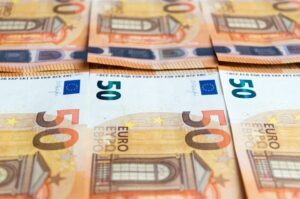The Future of Forex Trading: Integrating Artificial Intelligence and Trading Robots
The world of forex trading has been revolutionized in recent years with advancements in technology. One such advancement that has gained significant attention is the integration of artificial intelligence (AI) and trading robots into forex trading strategies. This integration has the potential to reshape the landscape of forex trading, making it more accessible, efficient, and profitable.
Artificial intelligence, in simple terms, refers to the ability of a machine to perform tasks that would typically require human intelligence. This includes tasks such as analyzing large amounts of data, recognizing patterns, and making decisions based on that analysis. When applied to forex trading, AI has the potential to enhance trading strategies by providing traders with valuable insights and automating various aspects of the trading process.
One of the key advantages of using AI in forex trading is its ability to analyze vast amounts of data in real-time. The forex market is a highly dynamic and complex market, where prices are influenced by various factors such as economic indicators, news events, and market sentiment. Analyzing all these factors manually can be a daunting task for a human trader. AI, on the other hand, can effortlessly process huge amounts of data and identify patterns that may not be obvious to human traders. This allows traders to make more informed decisions and capitalize on profitable trading opportunities.
Another significant advantage of integrating AI into forex trading is the automation of trading strategies through the use of trading robots. Trading robots, also known as expert advisors (EAs), are computer programs that execute trades based on pre-defined trading rules. These rules can be developed by human traders or generated by AI algorithms. By automating trading strategies, traders can eliminate human emotions and biases from their decision-making process, which often leads to poor trading decisions. Trading robots can execute trades with precision and consistency, leading to more profitable trading outcomes.
AI-powered trading robots can also adapt to changing market conditions. The forex market is highly volatile, and market conditions can shift rapidly. A trading strategy that was profitable yesterday may not work today. AI algorithms can continuously analyze market data and adjust the trading strategy accordingly. This adaptability allows traders to stay ahead of the market and take advantage of new trading opportunities as they arise.
Furthermore, the integration of AI and trading robots has the potential to make forex trading more accessible to a wider audience. Traditionally, forex trading required a significant amount of time, knowledge, and experience. However, with the advent of AI-powered trading robots, even novice traders can participate in forex trading with ease. Trading robots can provide recommendations and execute trades on behalf of the trader, eliminating the need for extensive market analysis and technical expertise.
Despite the numerous advantages, there are also potential challenges and risks associated with integrating AI and trading robots into forex trading strategies. One of the main concerns is the reliability and accuracy of AI algorithms. AI algorithms are only as good as the data they are trained on. If the training data is biased or incomplete, the AI algorithm may produce inaccurate or biased results. Therefore, it is essential to ensure the quality of the data used to train AI algorithms to avoid any unintended consequences.
Another potential risk is over-reliance on AI and trading robots. While AI can provide valuable insights and automate trading strategies, it should not replace human judgment entirely. Human traders still play a crucial role in monitoring and adjusting trading strategies based on market conditions and their own intuition. It is important to strike a balance between AI-driven automation and human decision-making to achieve optimal trading outcomes.
In conclusion, the integration of artificial intelligence and trading robots into forex trading has the potential to revolutionize the industry. AI can analyze vast amounts of data in real-time, providing traders with valuable insights and automating trading strategies. This can lead to more informed decisions, improved trading performance, and increased profitability. However, it is important to carefully consider the potential challenges and risks associated with AI and trading robots and strike a balance between automation and human judgment. The future of forex trading is undoubtedly intertwined with AI, and traders who embrace this technology are likely to have a significant competitive advantage in the market.





